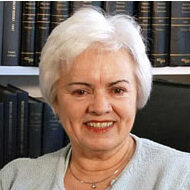Last fall I devoted some space in this column to a discussion of the AHA’s efforts to support graduate programs in history as they adapt to a changing environment, both inside the university and in the wider community. At that time we had just received news that the Carnegie Corporation had awarded the AHA a substantial grant for a study of graduate education in history, a grant that would provide support for the first such endeavor in 40 years. I now want to give members a progress report on how that project is proceeding.
Our first task was to seek out a research director and find a suitable location for housing the project. After a national search launched last fall, we appointed Phil Katz, former director of public programs at the New York Council for the Humanities, and he began work on January 1, 2001 (see the detailed announcement of Katz’s appointment). His office is located at the headquarters of the Woodrow Wilson Foundation in Princeton, in close proximity to Project Director Colin Palmer of Princeton University and Secretary Thomas Bender at New York University.
The Woodrow Wilson Foundation is a particularly appropriate partner for the AHA in pursuing our study of graduate education. Not only does it have a decades-long history of financial support for graduate work but, under the leadership of Robert Weisbuch who came to the foundation from the University of Michigan in 1997, it has become a major player in efforts to advocate the importance and utility of graduate education in the humanities. The foundation is the location also for the National Council on Education in the Disciplines, which is currently focused on strengthening history education in grades 11–14, as well as a new initiative supported by the Pew Charitable Trusts to review several recent studies and projects on doctoral education and to shape recommendations for action. Historian Earl Lewis, graduate dean at the University of Michigan, will be a leader in this project.
The AHA’s Committee on Graduate Education had its first meeting in November 2000 to design the study and to explore related issues with scholars from a wider set of fields and institutions than is represented on the nine-member committee. At an Open Forum on Graduate Education held at the AHA meeting in Boston, a roomful of interested members provided further advice. We hope also to schedule a dozen or so additional forums at meetings of other associations during the next year.
A second meeting of the committee in Boston formulated a specific timetable and set of plans. Currently, we hope to have a survey in the field—targeted to directors of graduate studies at all PhD-granting departments and a sample of MA-level programs—by April 15. We will follow up with additional mailings and telephone inquires in May and June. Plans for late summer of 2001 include beginning analysis of survey data and selecting institutions that members of the committee will visit in the fall.
We think this is a very important project. However, it will only be important and useful if it is carried out in cooperation with departments of history that train graduate students and also with history departments and other organizations that employ the historians who earn the degree offered by these programs. The Committee on Graduate Education and its staff are ready to listen.

